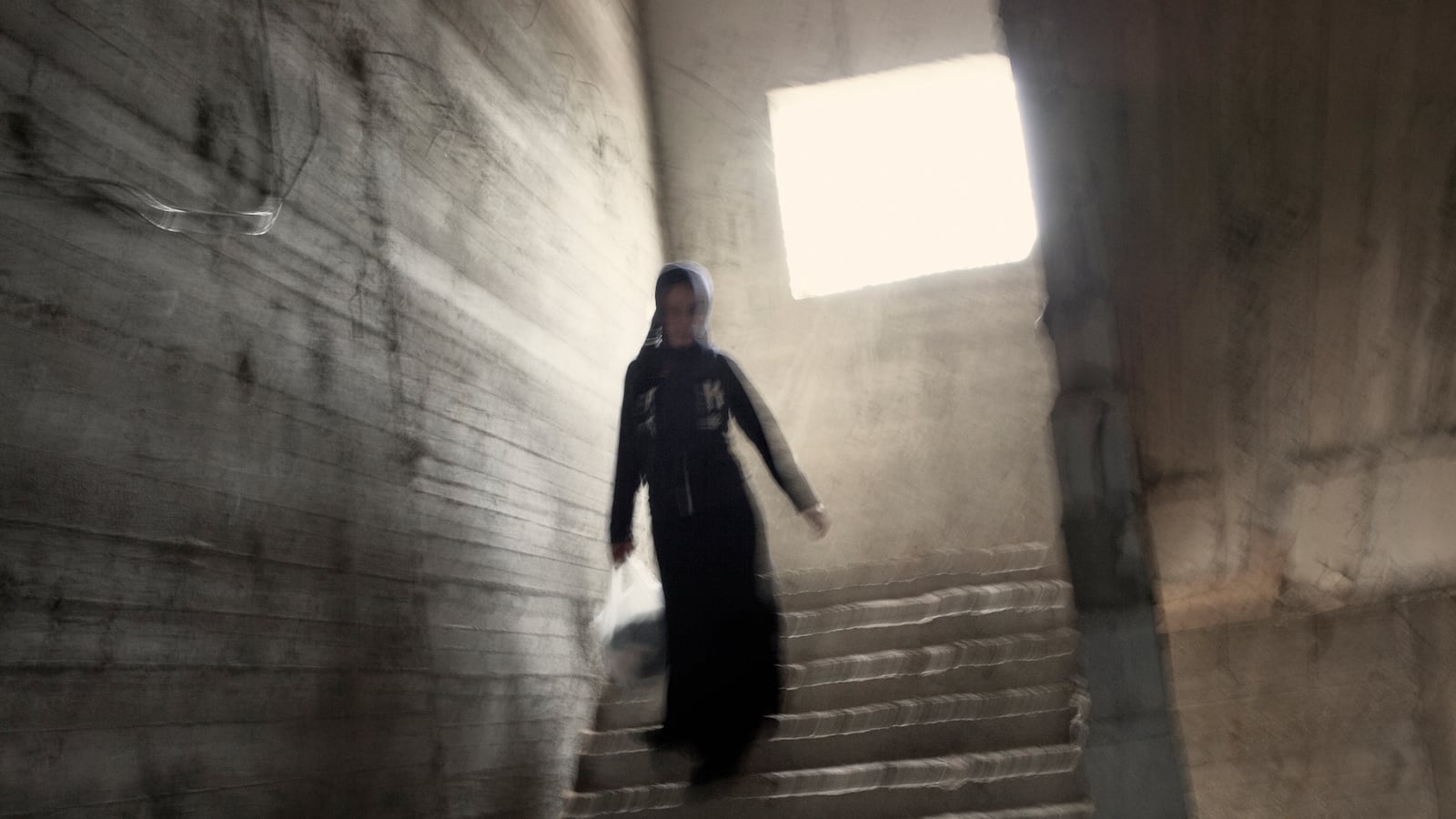In 2004, Suhad’s father received a phone call regarding his family’s distant cousins in Iraq. The violence from the fallout of the American invasion had sent his relatives in desperate search of safety outside their homeland’s borders; their plan was to head to Syria.

“The question was not, ‘Why did we take them in?,’ it was, ‘How could we not?’” explains Suhad. When her cousins arrived, they brought not only their own family, but also their non-related neighbors—a total of 11 people. Suhad says her family didn’t even flinch, “In our religion, if a stranger comes to your door, you welcome them as a guest.”
Suhad is now a refugee herself—one of over half a million Syrian exiles living between refugee camps and shantytowns throughout Jordan. Over 2.5 million Syrians have fled to neighboring countries since the uprising began three years ago in 2011, and the U.N. estimates that nearly three-quarters of the country’s population will need humanitarian assistance in 2014. Although the U.N. has consistently asked for an increased emergency budget for the Syrian crisis, budget goals have yet to be met. So far, less than 15 percent of the U.N.’s Emergency Syrian Fund’s budget goals have been met for 2014, and U.N. agencies like the World Food Program have said they face “serious funding shortfalls in Syria.”
After fleeing their homeland just over two years ago, Suhad’s family resides in a makeshift compound for Syrian refugees and foreign workers near Amman, Jordan. Suhad says her family was never political, but when the government attacked a neighboring town in early 2012, her family feared their town might be next and decided to head across the border. Although they could have sought refuge with their cousins in Iraq, Suhad says her father feared the security situation there and thought the stability of Jordan would be a better option for the future.
“We’d been discussing it and trying to make arrangements for a few months, but when we heard the news of the attack, my father called my husband and said we were leaving that very night,” recalls Suhad. She says that they packed their most valuable possessions and took what cash they could (the banks were overwhelmed with people trying to withdraw their savings, she says). Suhad claims that the passage to safety cost much more in bribes than her family had expected, and thus, they “arrived with nothing” and were forced to stay in the infamous Zaatari refugee camp, known for its particularly harsh and unstable conditions, for the first seven months. After pooling funds with two other families from their town, they managed to obtain a tiny apartment with sporadic electricity, shared by three families in order to “escape Zaatari,” explains Suhad.
“To see the same people who once helped the Iraqi refugees now arriving penniless, sometimes without even shoes on their feet, is heart-breaking,” said the UNHCR’s Sybella Wilkes by phone. Wilkes was UNHCR’s Regional Public Information Officer in Syria from 2006 to 2009, a time in which she says she witnessed an outpouring of goodwill and hospitality from many Syrians towards the Iraqi refugee influx. “In those years, I watched Syrians open their doors to a countless number of Iraqi refugees. Now these same warm, generous people are refugees themselves with much less support. I can’t stress enough what a vulnerable situation they are in.”
Perhaps ironically, there are now over 200,000 Syrian refugees who have fled to Iraq.
Marium, a 25-year-old Syrian refugee living in southern Turkey, also shared memories of a time when her family played host to Iraqi exiles. Marium’s family, part of a Christian community in northern Syria, arranged for safe passage for Christian Iraqis during the height of the Iraq War. At the time, the Syrian government prohibited Iraqi refugees from studying in Syrian institutions of higher education, and so Marium’s family arranged for Iraqis to study in universities in other parts of the Arab world and abroad, supported by international faith-based charities. Now Marium hopes that, through the same faith-based networks, her family will be able to move to the Netherlands.
“We know that we are much luckier than many—so many have died, are sick in the camps, or cannot find their families—and we are lucky to have each other, to have our health and our faith,” Marium explains, as two of her four children play with her hair. “But coming here [to Turkey] is hard. We don’t speak the language, it is more expensive than Syria, and the war has taken a big toll on my children’s education and their psychological health. At first, we wanted to stay nearby to hear the news of what’s happening, but now we don’t see any end, and we want our children to live without constantly thinking about war.”
For Marium, her memories of the Iraqi refugees in Syria seem “like another life.” “When I think back about what we did for them [the Iraqi refugees],” she pauses and shakes her head, “I realize that I never thought at the time that our lives could end up like theirs.”
Suhad expressed similar emotions as she reflected on her family’s time with their Iraqi guests. She says that they hosted the Iraqi refugees (and occasionally their Iraqi cousins or neighbors) for four years before they returned home. During that time, her father and uncles employed them just like they had her brothers, she says, and even arranged for one of her Iraqi cousins to continue his work as a mechanic by getting in touch with sympathetic friends in Damascus. She says she wishes they had experienced this warmth in Jordan but doesn’t blame the Jordanians. “There are a lot of us,” she shrugs.
“I used to feel like this was just a nightmare,” Suhad reflects, pointing to her over-crowded apartment lit by candles in the absence of electricity. “But now it’s been three years of war, so many Syrians killed, and no matter how hard we try, we can’t seem to make it here. So now when I think back on our happy life in Syria, I’m starting to think that life—what should be our real life—was just a dream.”






